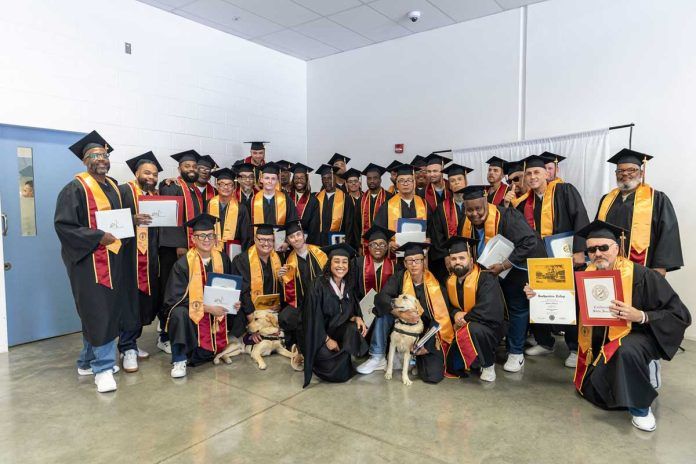On Oct. 22, Southwestern held a rare graduation ceremony for more than 40 incarcerated individuals at the Richard, J. Donovan Correctional Facility who earned associate’s degrees in sociology and liberal arts.
Providing education in prison is proven to reduce recidivism rates and is associated with higher employment rates, which will improve public safety and allow individuals to return home to their communities and contribute to society. A 2018 study from the RAND Corporation, funded by the Department of Justice, found that incarcerated individuals who participated in correctional education were 48% less likely to return to prison within three years than incarcerated individuals who did not participate in any correctional education programs. RAND also estimated that for every dollar invested in correctional education programs, four to five dollars are saved on three-year re-incarceration costs.
As part of the Restorative Justice Program, which began in 2016, Southwestern College faculty provides face-to-face instruction to incarcerated students at the only state prison in San Diego County. Since its inception, Southwestern College has served more than 1,500 students at the Donovan Correctional Facility, helping them earn degrees and certificates in business administration, liberal arts, communications, American Sign Language, and sociology.
When the program began, Southwestern College was one of only 67 colleges and universities nationwide selected for a Second Chance Pell pilot program by the U.S. Department of Education. What began locally with 50 students during its first semester has grown to more than 400 students taking roughly 30 courses every semester. Most of the 41 students graduating plan to pursue bachelor’s degrees at a program offered by University of California Irvine.
The Second Chance Pell Experiment was first established in 2015 by the Obama-Biden Administration to provide Pell Grants to incarcerated individuals to allow them to participate in postsecondary education programs.

